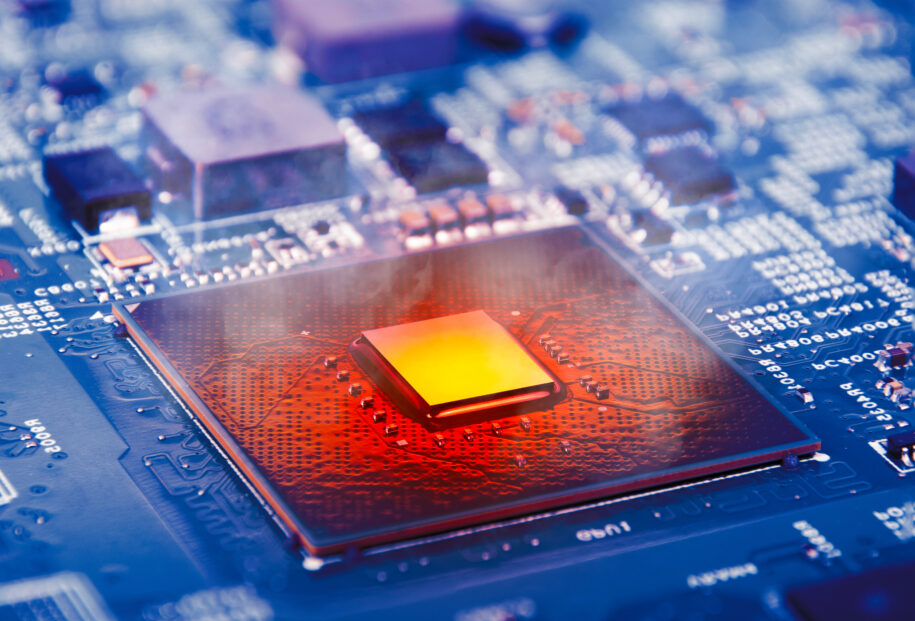
High CPU usage can lead to stuttering, frame drops, and even game crashes, making your gaming experience far from enjoyable. Understanding the causes and solutions for high CPU usage can help you optimize your gaming PC’s performance and get back to enjoying your favorite games smoothly.
What Causes High CPU Usage?
There are a variety of things that can cause high CPU usage. Keep in mind high CPU usage isn’t necessarily a bad thing, but if you are trying to get the best performance when running your games it can become a hinderance.
- Background Applications: Programs running in the background can consume significant CPU resources. This includes system processes, startup programs, or applications like browsers, which can run unnoticed and slow down your PC.
- Outdated Drivers: Your CPU relies on drivers to communicate effectively with the rest of your hardware. Outdated or incompatible drivers, especially for your graphics card and chipset, can cause your CPU to work harder than necessary.
- Poorly Optimized Games: Some games may not be well-optimized for your hardware, leading to unusually high CPU usage. This is especially common with newly released games that may still have bugs or inefficient coding.
- Virus or Malware: Malicious software can run in the background, consuming CPU resources and impacting your system’s performance. The odds of this being the case are low, but something to always consider.
- System Settings and Overclocking: Incorrect system settings or overly aggressive overclocking can lead to high CPU usage, instability, and overheating.
How to Fix High CPU Usage on Your Gaming PC
Now that we have an idea of what can cause high CPU usage, let’s check out some solutions to reduce high CPU usage and improve your gaming PC’s performance.
1. Close Unnecessary Background Applications
Perhaps the most straightforward solution Start by closing any unnecessary applications running in the background. To do this:
- Press
Ctrl + Shift + Escto open Task Manager. - Go to the “Processes” tab and look for applications that are using a lot of CPU.
- Right-click on the application and select “End Task” to close it.
2. Update Your Drivers
Ensure your CPU and other hardware components are running on the latest drivers:
- Update your graphics card drivers via the NVIDIA GeForce Experience or AMD Radeon Software.
- Check for chipset driver updates on your motherboard manufacturer’s website.
- Regularly update Windows to get the latest performance improvements and bug fixes.
3. Adjust In-Game Settings
High CPU usage can often be mitigated by tweaking in-game settings:
- Lower CPU-intensive settings such as shadows, draw distance, and particle effects.
- Enable V-Sync or frame rate limiters to cap your FPS, which can help reduce CPU load.
- Consider adjusting the resolution scale or running the game in a windowed mode to reduce strain on your CPU.
4. Optimize Power Settings
Switching your PC’s power plan to “High Performance” can sometimes help:
- Go to
Control Panel > Hardware and Sound > Power Options. - Select the “High Performance” plan, which prioritizes performance over energy savings.
This change will make your CPU run at higher frequencies, potentially increasing performance but at the cost of higher power consumption.
5. Adjust CPU Affinity and Priority
If specific applications are hogging the CPU, adjusting their affinity and priority can help:
- Open Task Manager (
Ctrl + Shift + Esc). - Right-click on the game or application in the “Processes” tab and choose “Go to details.”
- Right-click on the application again, select “Set affinity,” and allocate fewer CPU cores if necessary.
- You can also adjust the priority by selecting “Set priority” and choosing between “High” or “Above normal.”
7. Check for System Bottlenecks
High CPU usage can also be a sign of other bottlenecks in your system:
- Ensure your PC has adequate cooling; overheating can throttle your CPU, causing it to run inefficiently.
- Consider upgrading your RAM if you’re running on the lower end, as insufficient memory can increase CPU load.
- Check if your storage drives (especially HDDs) are too slow or full, as this can also cause high CPU usage.
Conclusion
High CPU usage can be detrimental to your gaming experience, but with these steps, you can significantly reduce CPU strain and get back to smooth gameplay. Regular maintenance, keeping your system updated, and being mindful of the applications you run will help you maintain optimal performance on your gaming PC. If problems persist, consider contacting our customer support team for additional support.